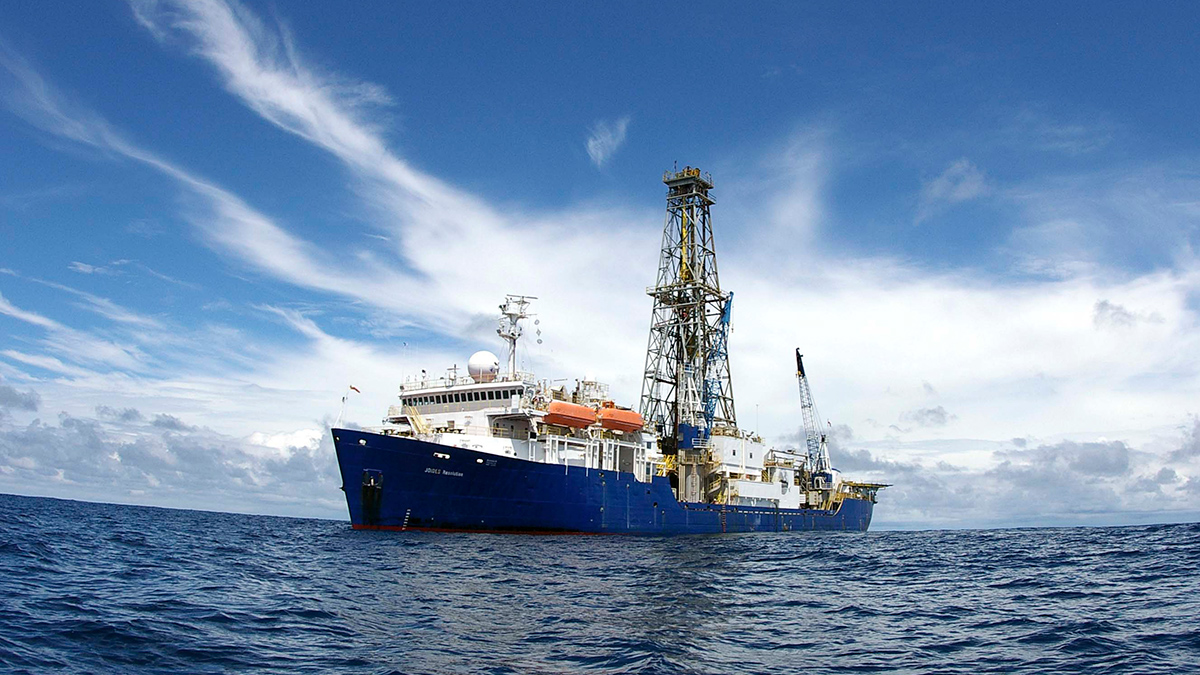The JOIDES Resolution (JR) embarked on its last voyage this week. After nearly 4 decades of service, the National Science Foundation is retiring the storied, seasoned scientific ocean drilling vessel, citing budget woes, the end of an international agreement, and the ship’s environmental impact.
Expedition 403 will head from Amsterdam to Fram Strait, a passage between Greenland and Svalbard, where scientists will extract seafloor sediment cores at six sites over 2 months.
For Kristen St. John, a marine sedimentologist at James Madison University, the moment is bittersweet. St. John, a co–chief scientist of Expedition 403, has been a scientist on multiple JOIDES cruises and even met her husband aboard the JR. “My whole career has been connected to this vessel,” she said. “It’s hard to picture it not in operation.”
During Expedition 403, scientists plan to collect sediments deposited over roughly the past 5 million years. Expedition leaders chose to study Fram Strait because previous research indicated it has been a site of rapid sediment deposition. Such deposition means that each sediment layer records a relatively short amount of time and that cores from the strait will likely offer more detailed information about past conditions compared with previous Arctic cores.
The cores will help scientists learn how the Atlantic Ocean’s flow of warm water from the tropics to the Arctic—an area especially sensitive to global warming—has historically affected Arctic glaciations, ice shelf development, and sea ice distributions. Additionally, the area’s long-gone Svalbard–Barents Sea Ice Sheet is considered a good analogue to the present-day West Antarctic Ice Sheet—and “understanding what happens at the West Antarctic Ice Sheet really, really matters to climate and sea level models,” St. John said.
The expedition “will be a major step forward in our understanding of ice sheet dynamics and climatic-oceanic interactions,” Beth Christensen, a marine geologist at Rowan University, wrote in an email. Christensen is not involved with Expedition 403.
More Science Remains
“It’s a mistake to stop the drilling in the ocean.”
Although this will be the final journey for the JR, the scientists and crew are treating the trip like every other, St. John said. “We’re very focused on the task at hand.”
Marine scientists on board and in the broader community view the retirement of the JOIDES as a substantial loss to the research community. Christensen wrote that she hopes a new scientific drilling vessel will be up and running in her lifetime because scientists still have many more questions about Earth systems that require detailed studies of marine sediments to answer. “We have really only begun to scratch the surface,” she wrote.
“To stop the exploration of the oceans is like telling people, ‘You got to the Moon—what’s the point in going to Mars?’” said Renata Giulia Lucchi, a marine sedimentologist at the National Institute of Oceanography and Applied Geophysics in Italy and co–chief scientist of Expedition 403. For scientific research, “it’s a mistake to stop the drilling in the ocean,” she said.
—Grace van Deelen (@GVD__), Staff Writer

